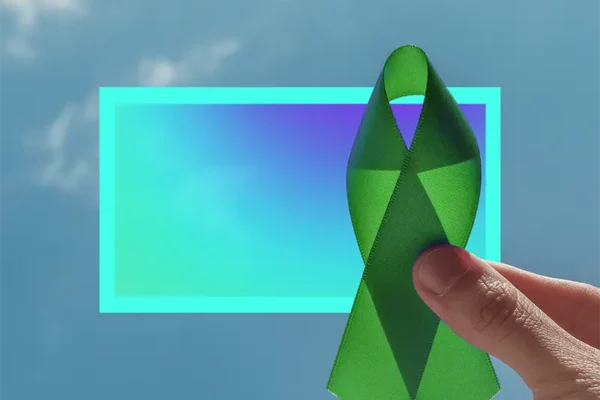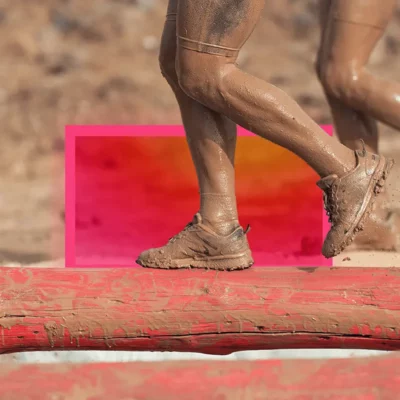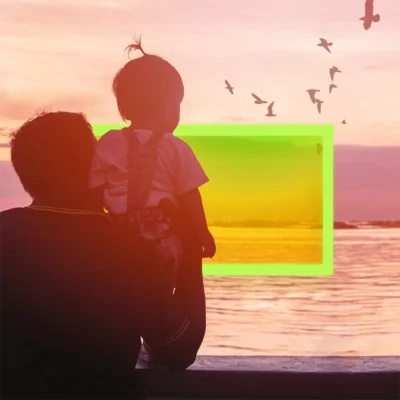ROHAN GUNATILLAKE: I learnt a piece of information about mental health recently that surprised me, and I guess saddened me a little bit too. Namely that the average delay between the onset of someone’s symptoms of a mental health challenge, and their getting treatment for it, is 11 years. Imagine that. Imagine the people who are spending months and years facing down a mental health challenge on their own, before they get a diagnosis that can help them.
It’s why campaigns like Mental Health Awareness Month, which is taking place across the U.S. this month, really do matter. In my home here in the UK, we do Mental Health Awareness Week in May as well. Campaigns like these can help people recognize issues and find out how to take action, for themselves and the people they love. Helping someone early on to seek support can make a lifetime of difference. I’ve learnt that the hard way.
The theme of Mental Health America’s main campaign this year is Back to Basics, all about providing foundational knowledge about mental health and mental health conditions and information about what we can do if we have a cause for concern.
So today, for one of my solo episodes, that is what I’m going to use as the jumping-off point for our little meditation together.
And when we come back to basics in the context of mindfulness and meditation, we come back to the breath. Awareness of breathing. Resting our awareness with the sensations of breathing, however they appear most obviously to us in the moment.
Making the basic sensations of the breath our home. And my invitation to you is to keep it here. Even as I talk and the episode continues. Hearing anything else I have to say while still connected with the breath. Back to basics.
You may have heard me mention before that alongside my hosting of Meditative Story, I also work for the National Health Service here in Scotland. I work on a range of technology and design projects, and recently several have been about mental health, and in particular the importance of peer support and hearing from others with lived experience, Hearing first-hand stories of how others have overcome challenges make it easier to move forward with our own. Sound familiar at all?
So do this for me, okay? Before you listen to our next episode, ask someone how they are feeling. And if they’re not doing so well, share some of your own experiences of dealing with the difficult. Being seen and being heard is so important. Especially for people who have the least access to health care.
What’s also important? Awareness of breathing, so let’s keep doing that.
The good news is that mental health is now so much more a part of the conversation. And the growth of mindfulness and meditation is a result of that as more tools are researched and become available, be that for wellbeing or for the more clinical stuff.
Part of the reason it’s more of a thing we talk about is the softening of stigma. But stigma is still totally an issue. Stigma and discrimination makes many people’s problems worse, and it can come from a range of sources: society, the media, workplaces, friends and family even. There is also internal stigma, where we come to believe the negative messages or stereotypes about ourselves.
Call it self-talk or the inner critic, it is so common. And a cause of anguish on top of an already difficult experience. An additional layer or as it is often called in the mindfulness tradition: the second arrow.
I’ve asked you to stay aware of breathing as the episode continues. How have you been getting on with that? Now that I’ve asked you to judge yourself on that task, is there any negative self-talk that has arisen? See how easy it is to slip in?
When stigma is removed, then there is less pain. So we continue to soften the stigma, be that in ourselves and in others around mental health. I know so many people who live with a mental health condition or have done so in the past. It’s as human as it comes.
So part of going back to basics means recognizing that it is basic. We get sick. But we’ll only start to get better when we feel safe enough to recognize that. So let’s encourage that safety.
Breathing. Breathing.
Breathing in stigma. Breathing out safety.
How are you doing? Really doing?
Have things that used to feel easy started feeling difficult? Does the idea of doing some daily tasks ever feel really, really hard? Have you lost interest in activities and hobbies you used to enjoy? Do you sometimes feel irritated, possibly to the point of lashing out at people you care about?
When was the last time you explored these kinds of questions, either for yourself or for another? This podcast episode isn’t a conversation because as much as I’d like to hear your answers I can’t. But someone else can, or you can be that person for someone.
Back to basics. Having the basic conversations that explore how you or the people in your life are really doing. Breathing. Being present with your experience, being present with another, for them.
It could be said from a mindfulness perspective that every month is Mental Health Awareness Month, but I’d be wrong. It’s not. But because it’s May now, this is Mental Health Awareness Month, so I invite you to reflect on the action you would like to take for it. Taking care of yourself, taking care of another, or just learning more about what conditions exist, how to spot the signs, and where to go for help.
Research shows that about half of Americans will meet the criteria for a diagnosable mental health condition sometime in their life, with symptoms starting by age 24 for the majority of people. There’s so much more I know now that I wish I knew when I was 24. So it’s always a good time to go back to basics.
Breathing.
Listening.
Reaching out.
Talking.
Asking for help.
To find out more about the Back to Basics campaign for Mental Health Awareness Month, visit the Mental Health America website at mhanational.org/may.
Thank you, and go well.






